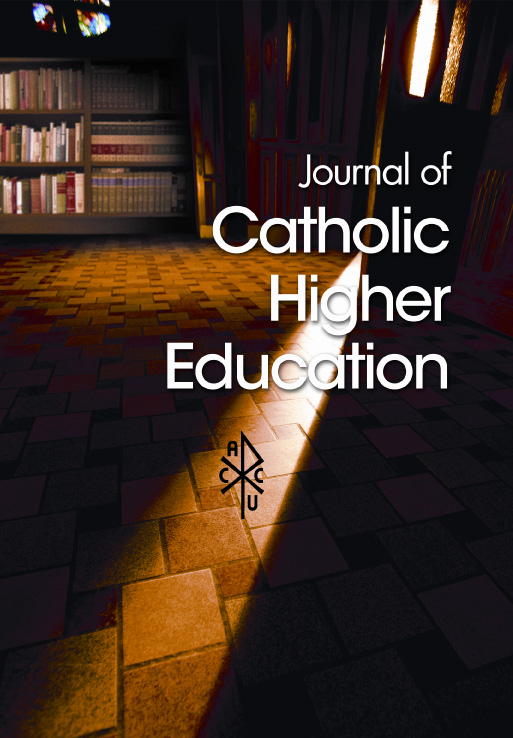Integrating Justice Education A Whole-Campus Approach to Implementing Justice Education for Future Leaders
Main Article Content
Abstract
Neoliberalism affects the mission of Catholic higher education by redefining the very meaning of higher education; it dislocates education by commodifying its intrinsic value, emphasizing practical knowledge for economic use, demoralizing educators, and paralyzing administrators with red tape. To resist these challenges, this paper argues for a whole-campus approach to implementing justice education. It first addresses some of the challenges associated with the ongoing worldwide process of neoliberalism in Catholic higher education. Second, it examines the existing scholarship on justice education, including Catholic social teaching, paying particular attention to how the vision put forward in Pope John XXIII’s Mater et Magistra (“Mother and Teacher”) would be an effective option for deepening and widening the teaching of justice, both as character development and community-engagement learning in practice. To extend this discussion to a broader community-based study, I will also include several examples of Catholic higher-education institutions and their applications in the education system.1 Finally, this paper suggests pedagogical practices and a system-wide approach. These include the implications of justice in the classroom, in student life, and in academic administration. Focusing the paper on the formation of a just campus and society and championing those efforts of university educators—including faculty, staff, and administrators—affirms the telos of an integrated justice education, i.e., justice education aims at everyone involved in the educational experience becoming just.


